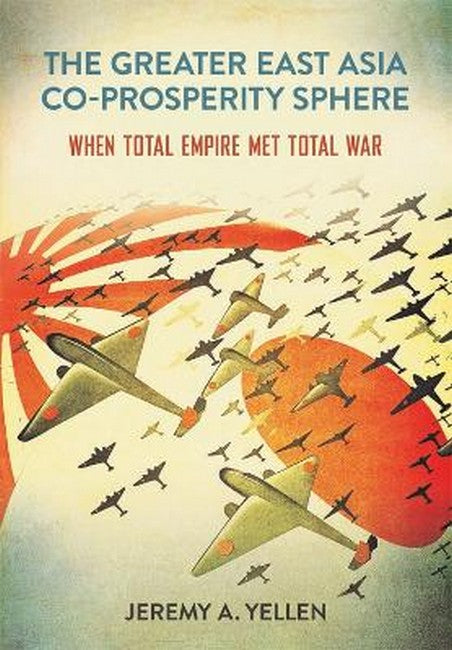Jeremy A. Yellen is Associate Professor in the Department of Japanese Studies at the Chinese University of Hong Kong.
Request Academic Copy
Please copy the ISBN for submitting review copy form
Description
The author's insights, based on extensive research, add depth to understanding of Japan's wartime decision-making process while also correcting misreadings of the role played by its erstwhile collaborators in Burma and the Philippines (Choice) No English-language monographs have [yet] explored the Greater East Asia Co-Prosperity Sphere-Japan's wartime effort to impose a new regional order-from the vantage point of Japanese high policy. Jeremy Yellen has admirably filled this gap, offering innovative insights into Japan's abortive effort to redefine the international relations of East and Southeast Asia from the late 1930s to 1945. (Global Asia) Yellen offers a useful examination of the changing and contested meaning of Japan's proclaimed 'Co-Prosperity Sphere.' [His] work helps inform about an important but opaque aspect of World War II history that influenced the receding of Asian empires after that war. (Journal of Military History) The Greater East Asia Co-Prosperity Sphere is in fact a truly timely addition to the historiography of modern Japan in general and a fundamental contribution to the study of the Japanese wartime experience. (The Japan Society) In this outstanding new study of the Greater East Asia Co-Prosperity Sphere, Jeremy Yellen challenges the longstanding view that the Sphere was little more than a facade for Japan's predatory imperialism and that Asian leaders who collaborated with Japan were traitors to their countries. [E]ssential reading for anyone interested in the inner workings of the Japanese empire and its enduring legacy in Southeast Asia. (Pacific Historical Review) We had to wait forty-four years, but Yellen's The Greater East Asia Co-Prosperity Sphere: When Total Empire Met Total War was worth the wait. In his masterful account regarding the Co-Prosperity Sphere, Yellen argues that it was nothing more than 'a failed dream'-an incoherent vision that was contested and an idea that never coalesced into a coherent policy that could be enacted. (Journal of Asian Studies) The Greater East Asia Co-Prosperity Sphere offers a lucid, dynamic, and highly readable history of Japan's attempt to usher in a new order in Asia during World War II. (Cross-Currents: East Asian History and Culture Review) With his excellent command of Japanese and use of rich Japanese sources, Yellen reveals the ambivalence evident in Japan's policy making and implementation of the Greater East Asia Co-Prosperity Sphere. (Southeast Asian Studies) Yellen's study is a welcome step toward a fuller understanding of GEACPS led by international scholars on a truly global basis. (Pacific Affairs) Yellen describes in his deep empirical analysis, showing mastery of the archival record in Japan and the long stretch of Japanese secondary scholarship, how Japan was attempting to shape its own new world order. The delicious banquet that [he] serves up is the complex and at times completely incongruous definition of the sphere. (Journal of Japanese Studies)

